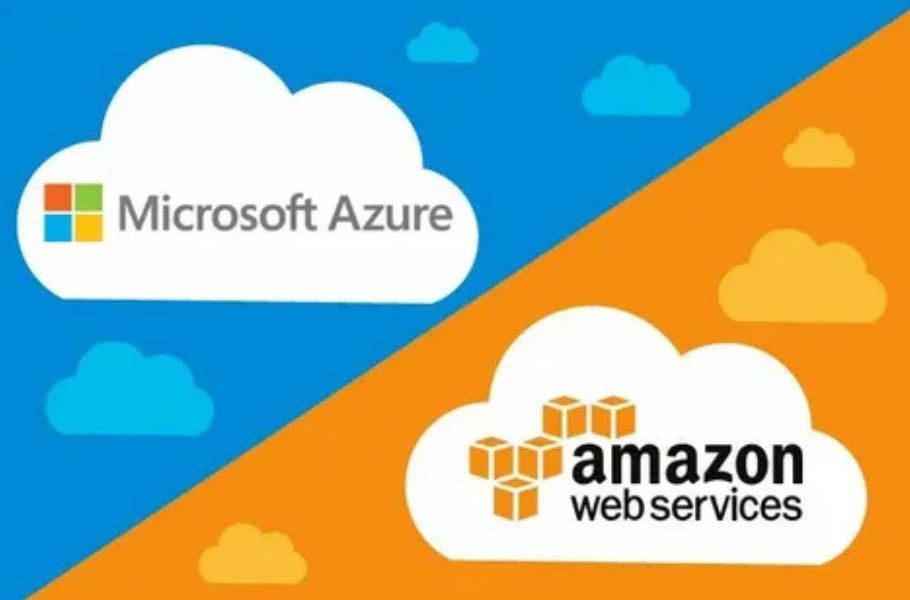In today’s increasingly digital world, the cloud has quietly become the backbone of how businesses operate, build, and innovate. Among the most talked-about cloud platforms are amazon web services vs google cloud vs azure Platform (GCP), and Microsoft Azure each offering its own blend of tools, strengths, and philosophy. Rather than approaching this comparison with sharp contrasts or technical jargon, let’s take a softer look one that invites understanding, eases complexity, and helps you gently explore the unique characteristics of these cloud leaders.
A Calm Introduction to Cloud Providers
Before diving in, it helps to understand that these platforms were born from very different beginnings. AWS emerged from Amazon’s need to scale its retail operations, amazon web services vs google cloud vs azure was built on the infrastructure that powers Google Search and YouTube, and Azure grew from Microsoft’s decades-long experience with software and enterprise tools. Despite these differences, they all aim to do one thing: help individuals and organizations build, store, and manage data and applications in the cloud.
Amazon Web Services – The Seasoned Trailblazer
Often considered the oldest and most mature player in the cloud space, Amazon Web Services (AWS) offers a vast and powerful collection of services. From computing and storage to machine learning and analytics, AWS provides almost everything you could need. It’s like stepping into a fully stocked library whether you’re running a small website or managing a global enterprise, you’ll find a tool tailored to your needs.
What makes AWS stand out:
- Unmatched global reach and infrastructure
- Extensive list of services (over 200 and growing)
- Deep experience in supporting large-scale businesses
While AWS can feel a bit complex for beginners, its breadth of features and rich documentation makes it a flexible and powerful choice for those ready to explore.
Google Cloud – Where Innovation Meets Simplicity
Google Cloud Platform (GCP) is often chosen by those who want strong data capabilities wrapped in a clean, modern experience. Google Cloud thrives in the world of big data, artificial intelligence, and containerized applications. Its roots in powering Gmail, YouTube, and Google Search give it an edge in performance, especially when it comes to analytics and innovation.
Why Google Cloud feels fresh:
- Strong focus on machine learning and AI tools
- Seamless integration with open-source technologies like Kubernetes
- User-friendly interface with a minimalist design
In the comparison of google vs amazon aws, Google Cloud may appeal more to developers, startups, and data-centric teams, while AWS caters to a broader range of enterprise use cases.
Microsoft Azure A Steady Bridge for Enterprises
Azure is a natural choice for businesses that have long relied on Microsoft products like Windows, Office, or SQL Server. It offers a deeply integrated experience for organizations already within the Microsoft ecosystem. What makes Azure special is its hybrid capabilities the ability to connect on-premises systems with the cloud in a flexible, gentle manner.
Why Azure feels familiar and reliable:
- Strong compatibility with Microsoft software
- Ideal for hybrid cloud environments
- Wide enterprise adoption and support network
Azure shines especially in industries like healthcare, finance, and government, where security, compliance, and seamless integration with existing systems are priorities.
Soft Touch points: Comparing Key Aspects
Let’s gently explore a few areas where these platforms show their unique personalities:
- Ease of Use
- AWS: Powerful but can be overwhelming for new users.
- Google Cloud: Streamlined and modern; friendly for developers.
- Azure: Comfortable for those familiar with Microsoft environments.
- Pricing
- AWS: Offers flexible pricing, but cost management can be tricky without careful monitoring.
- Google Cloud: Transparent pricing and sustained use discounts.
- Azure: Competitive pricing, especially for Windows-based solutions.
- Support & Community
- AWS: Large community and detailed documentation.
- Google Cloud: Helpful support for developers and strong innovation community.
- Azure: Strong enterprise support with helpful tools for large teams.
- Innovation Focus
- AWS: Constantly adding new services to lead the cloud race.
- Google Cloud: Deep focus on AI, machine learning, and data science.
- Azure: Balanced between innovation and practical business tools.
Choosing What Feels Right for You
When looking at amazon web services vs google cloud vs azure, the “best” choice really depends on your team, your goals, and what kind of experience you want.
- Choose AWS if you need a broad toolbox and global scale.
- Choose Google Cloud if data, AI, and developer-friendly tools matter most.
- Choose Azure if you’re rooted in Microsoft technologies or prefer hybrid cloud setups.
There’s no one-size-fits-all answer and that’s okay. Each platform brings its own strengths, gently guiding you toward what matters most for your project or business.
Conclusion
Cloud platforms don’t need to feel like a battleground of features or price points. Instead, think of amazon web services vs google cloud vs azure as three paths each offering you a way to build, grow, and support your ideas with clarity and care. Whichever path you choose, let it be one that feels aligned with your values, your team’s needs, and the future you’re building toward.
FAQs about amazon web services vs google cloud vs azure
Which cloud provider is easiest to start with?
Google Cloud is often praised for its clean interface and beginner-friendly environment. However, AWS and Azure both offer tutorials and free tiers to help new users ease in.
Is AWS better than Google Cloud?
It depends on your needs. AWS offers a broader range of services, while Google Cloud focuses on innovation, especially in data and machine learning. The comparison of google vs amazon aws is less about better or worse, and more about fit.
Can I switch between providers later?
Yes, but it may involve effort, especially if you’ve deeply integrated services. It’s wise to plan with flexibility in mind, or use tools that support multi-cloud strategies.
Is Azure only for Microsoft users?
Not at all. While Azure does offer great benefits for those using Microsoft tools, it also supports open-source technologies and integrates well with other platforms.
Are all three secure?
Absolutely. Each platform takes security seriously and offers a wide range of tools to protect your data. What matters is how well you configure and manage those settings.















